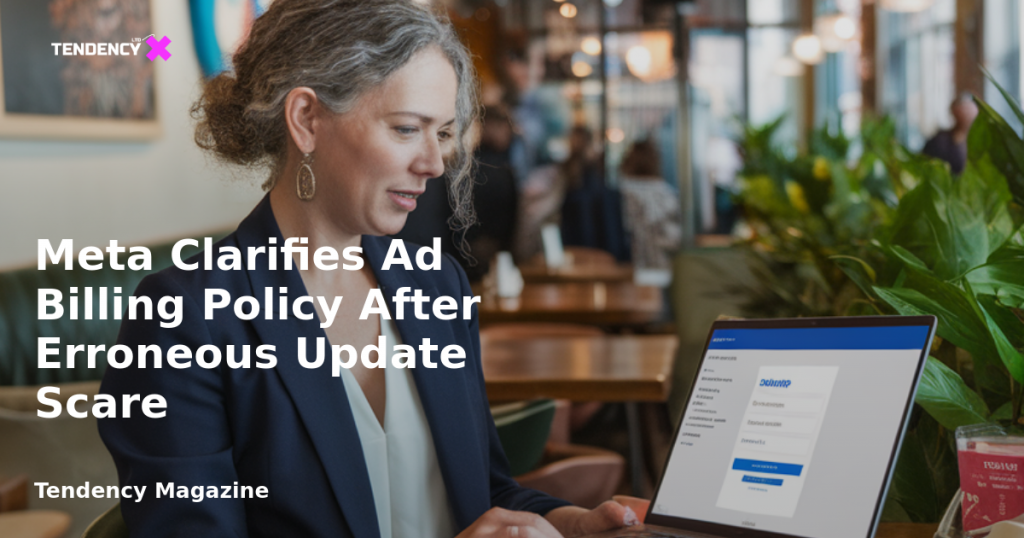Meta Clarifies Ad Billing Policy After Erroneous Update Scare

Introduction
In the fast-paced world of digital advertising, staying informed about changes in billing policies is crucial for advertisers who rely on platforms like Meta to reach their target audiences. Recently, a wave of concern swept through the advertising community when a potential change in Meta’s ad billing policy was reported. This article will delve into the details of the incident, clarify what actually transpired, and provide insights into how advertisers can effectively manage their ad budgets on Meta platforms.
Table of Contents
- The Initial Report on Meta’s Billing Change
- Understanding the Implications of Upfront Billing
- Meta’s Clarification and Retraction
- Best Practices for Managing Ad Budgets on Meta
- Conclusion
The Initial Report on Meta’s Billing Change
Last week, a version of Meta’s “How Meta charges for ads” page sparked concern among advertisers. The page indicated that advertisers would be charged immediately upon confirming their ad purchase, with the charge equal to the budget set for the ad. For instance, if a campaign was scheduled to run for two days with a daily budget of £10, an advertiser would be charged £20 at the time of purchase confirmation.
This potential change raised numerous questions within the advertising community. Advertisers wondered about the implications for campaigns that might be stopped early, those with lifetime budgets, or campaigns without a specified end date. The prospect of upfront billing seemed counterintuitive and caused considerable alarm.
Understanding the Implications of Upfront Billing
The notion of being charged upfront for ad campaigns could have significant implications for advertisers. For campaigns with longer durations or larger budgets, this change would mean a substantial financial commitment at the outset. Advertisers often adjust their budgets and strategies based on campaign performance, and upfront billing could limit their flexibility.
Moreover, campaigns that are halted prematurely due to unforeseen circumstances or strategic pivots would still incur the full budgeted charge, potentially leading to inefficiencies in budget allocation. This concern was at the forefront of advertisers’ minds as they sought clarification from Meta.
Meta’s Clarification and Retraction
Fortunately, the panic was short-lived. Meta swiftly addressed the issue, clarifying that the alarming information was the result of a technical error. A small number of users had seen outdated information, and Meta confirmed that there had been no recent changes to their billing policies. The error was promptly corrected, and Meta reassured advertisers that they offer various ways to manage expenses and determine when charges are incurred.
This retraction was a relief to advertisers who rely on Meta’s platforms for their marketing efforts. The reassurance that billing policies remain unchanged allowed advertisers to continue planning and executing their campaigns with confidence.
Best Practices for Managing Ad Budgets on Meta
Despite the temporary scare, it’s always beneficial for advertisers to review their strategies for managing ad budgets on Meta platforms. Here are some best practices to consider:
– **Set Clear Objectives**: Define clear goals for your ad campaigns, whether it’s increasing brand awareness, driving website traffic, or boosting sales. This will help in setting appropriate budgets and measuring success.
– **Monitor Campaign Performance**: Regularly review the performance of your ad campaigns. Use Meta’s analytics tools to track key metrics and make data-driven decisions to optimize your campaigns.
– **Utilize Budget Controls**: Take advantage of Meta’s budget control features, such as daily or lifetime budgets, to manage your spending effectively. Adjust budgets based on campaign performance and business priorities.
– **Stay Informed**: Keep up-to-date with any changes or updates to Meta’s advertising policies. Subscribe to Meta’s official communication channels to receive timely information.
Conclusion
In the ever-evolving landscape of digital advertising, staying informed and adaptable is key. The recent incident regarding Meta’s ad billing policy highlights the importance of vigilance and prompt communication from platform providers. By understanding the implications of billing policies and implementing best practices for budget management, advertisers can continue to leverage Meta’s platforms effectively and achieve their marketing objectives. As the digital advertising space continues to grow, staying informed and proactive will remain essential for success.
2025 Tendency LTD. All rights reserved.

